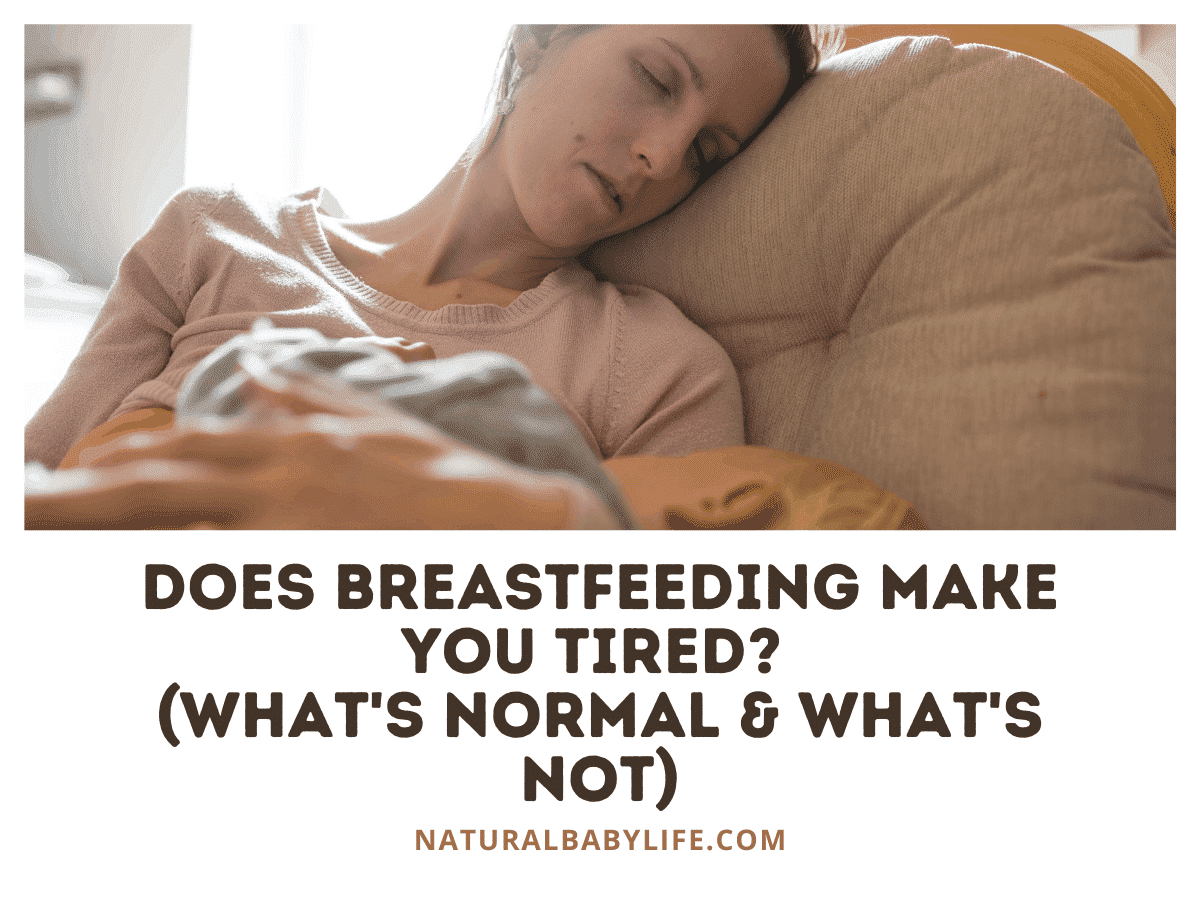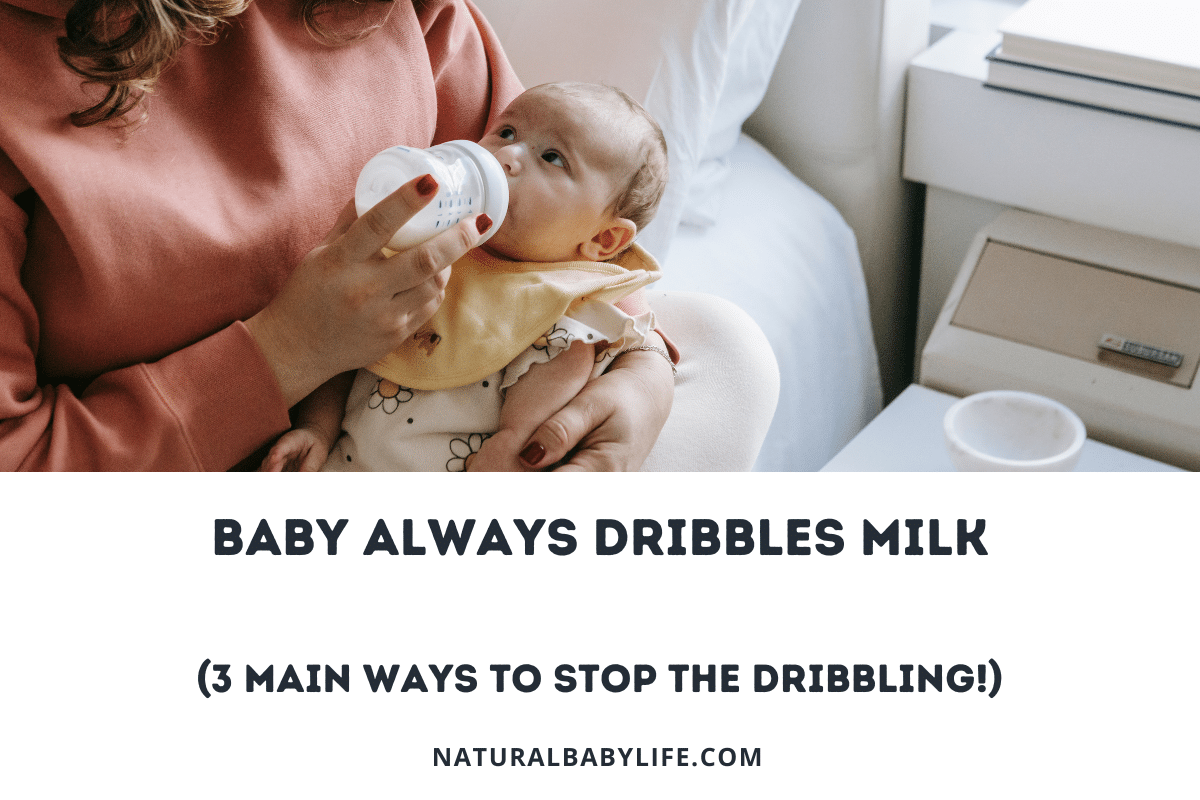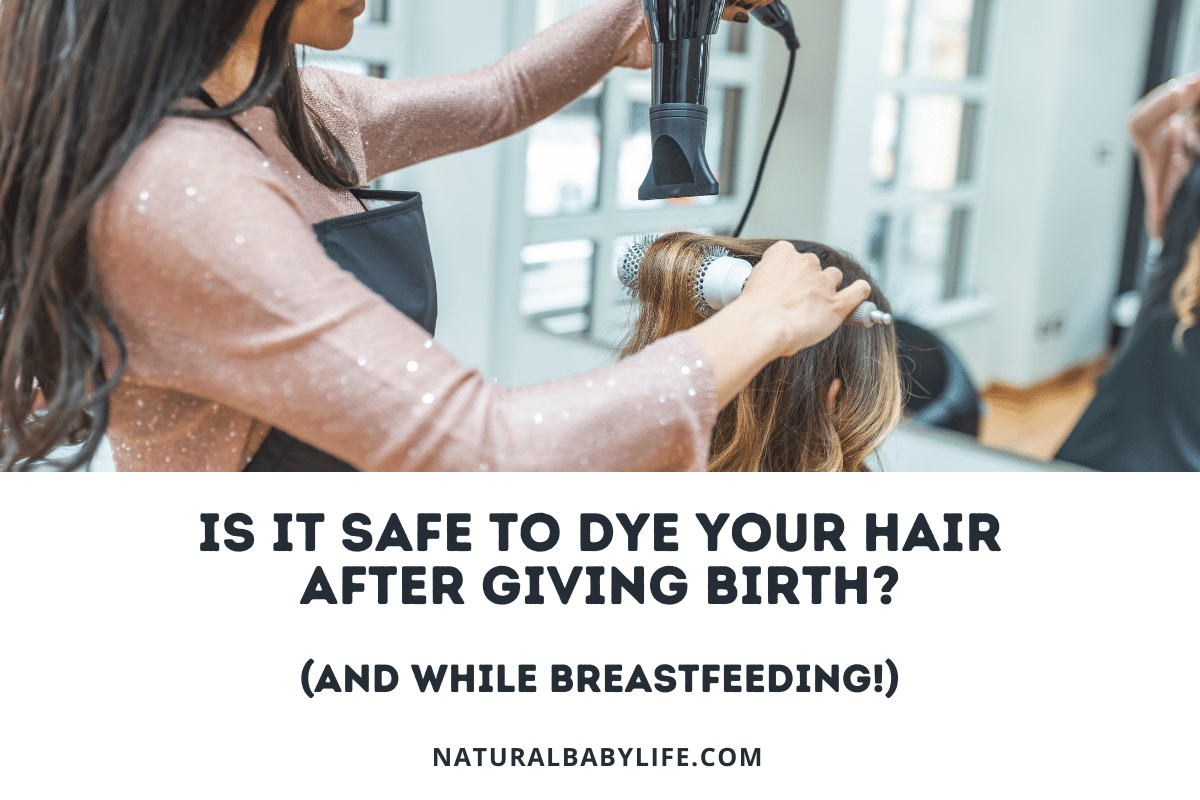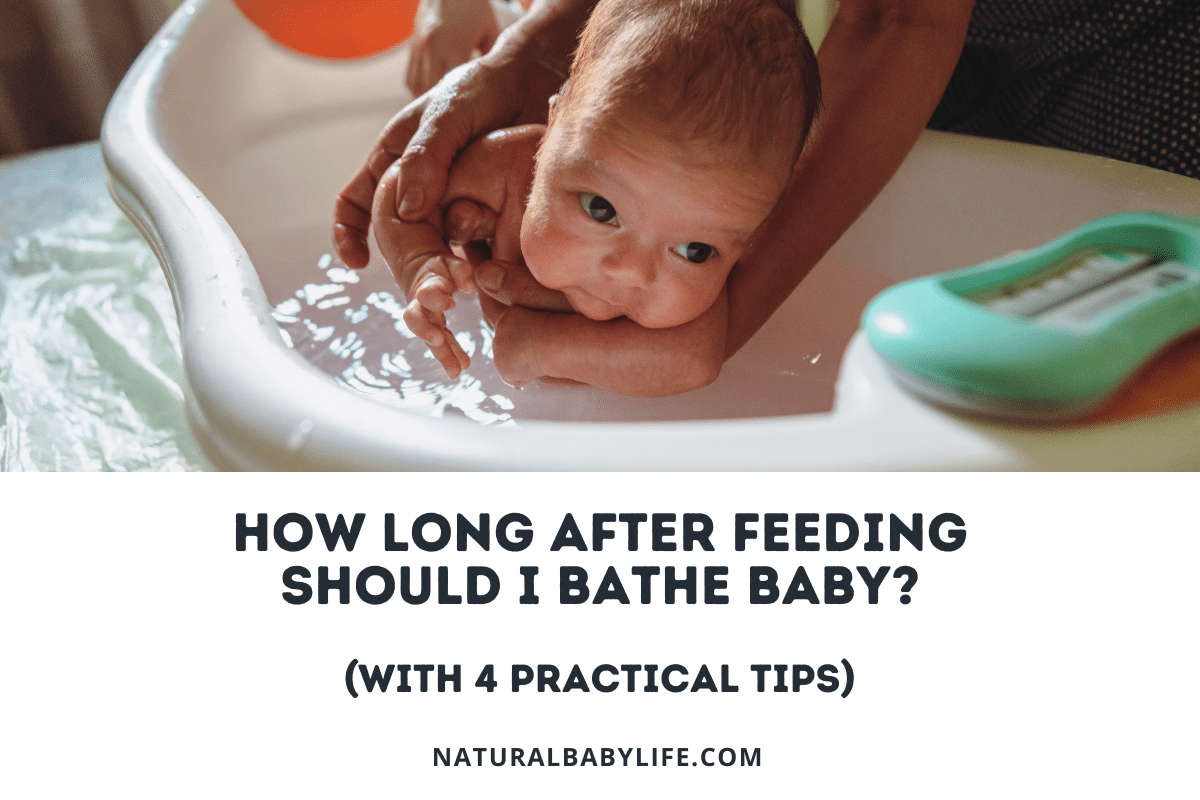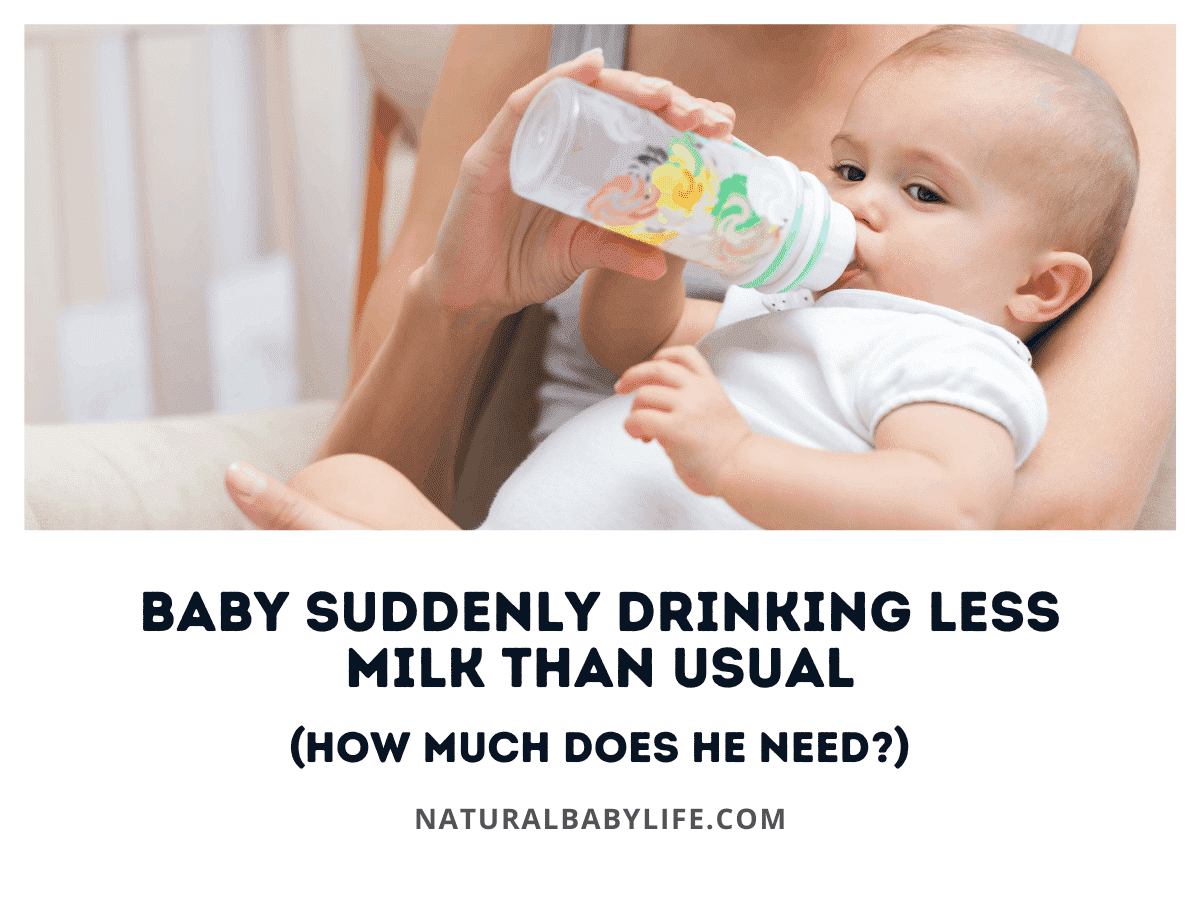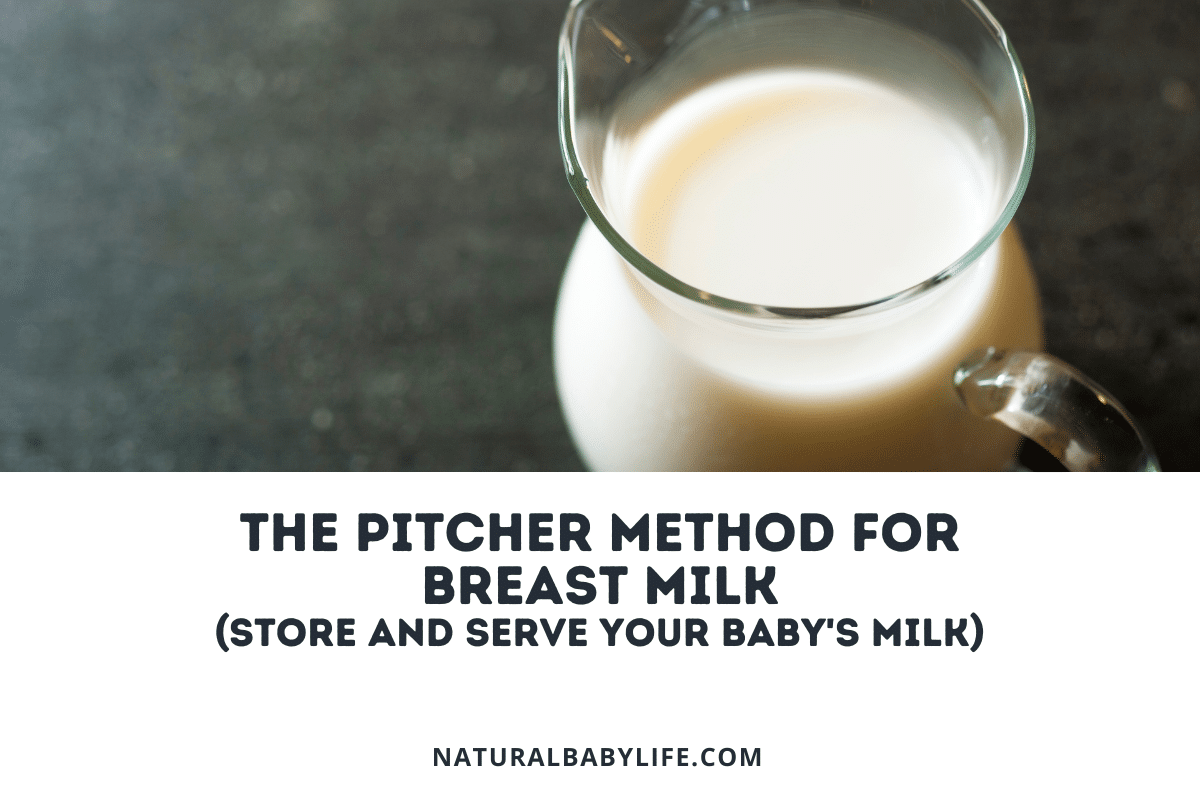While it is common for new parents to feel tired because they are getting less sleep than usual, breastfeeding mothers must deal with other factors which can lead to drowsiness and fatigue.
Breastfeeding can make mothers tired because the major hormones involved in breast milk production (prolactin) and milk letdown (oxytocin) often induce a feeling of calm, relaxation, and even drowsiness. Other reasons for fatigue during breastfeeding could include a vitamin D deficiency, the extra calories used up, and a general lack of sleep.
What are these sleep-inducing hormones, and what can you do to try and minimize your exhaustion? Keep reading for some helpful tips!
Table of Contents
Why does breastfeeding make you feel tired or sleepy?
When you have a newborn, exhaustion is pretty much guaranteed. Between the late-night feedings and the recovery associated with childbirth, you may find yourself walking around in a sleepy haze. But your exhaustion might come from more than just the changes to your schedule.
You’ve probably realized by now that pregnancy and childbirth come with all sorts of changes to your body. The cause of nearly all these bodily changes is a cocktail of different hormones: oxytocin, endorphins, catecholamines, prolactin, and many more. Each of these hormones is a specialized chemical messenger that works in perfect harmony with its peers to help your body accomplish the superhuman task of creating a baby.
These surging hormones are responsible for everything from morning sickness to your weight gain while pregnant. But even though hormonal changes are crucial during pregnancy, the carefully orchestrated hormonal dance doesn’t stop once you’ve had your baby.
During birth, the hormone oxytocin brings on the effective contractions that help move the baby through the birth canal. In turn, your body responds with an increase in the level of endorphins, which act as natural pain killers while you cope with contractions. Your body also releases catecholamines, which give you an energy boost almost immediately before the baby is born.
After giving birth, your body is already primed to start producing milk. The two hormones involved in breastfeeding are prolactin, responsible for milk production, and oxytocin, which aids in milk letdown. Although the primary purpose of these hormones is to produce milk for your baby, the combination of prolactin and oxytocin also induces a feeling of calm and relaxation in your body.
Even months after giving birth, the stimulation caused by your baby sucking at the breast triggers an increase in prolactin and oxytocin. These hormones help you breastfeed your baby, but leave you feeling relaxed and sleepy while doing so. The increase in these hormones explains why breastfeeding leaves you feeling so tired, even if you’ve somehow been managing to get a full night’s sleep.
Why does breastfeeding make me feel weird?
Although women usually feel a sense of calm sleepiness while breastfeeding, sometimes the experience can feel a little strange.
Some of the weirdness experienced during breastfeeding might just be due to the fact that you’re trying something new. Even though breastfeeding is a ‘natural process,’ that doesn’t mean it automatically comes easily. Especially in the early few weeks, breastfeeding can be a legitimate struggle. From problems with your baby latching to worries about milk production, the whole process of breastfeeding can honestly be described as a little weird.
Some women also experience a condition called Dysphoric Milk Ejection Reflex (D-MER). This condition occurs during breastfeeding, and is described as “an abrupt feeling of dysphoria (sadness, anxiety, irritability or other unpleasant, negative emotions)”. The sudden surge of negative feelings usually happens just before the milk is released, and only lasts for a few moments.
D-MER is a hormonal reflex and is completely out of the mother’s control. For women experiencing this condition, their dopamine levels drop suddenly to make room for the rise in prolactin that helps the body produce milk. Dopamine is closely tied to feelings of joy, so a sudden drop in dopamine causes a wave of negativity. Once breastfeeding begins and the hormone levels stabilize, the feelings of sadness balance out as well.
There are countless other reasons why breastfeeding might make you feel weird or uncomfortable. If you ever have questions about breastfeeding, consider speaking to your child’s pediatrician or to a licensed lactation consultant. And if breastfeeding just isn’t working for you and your baby, don’t be afraid to try formula.
Can breastfeeding make you feel unwell?
Because of the way breastfeeding alters your hormone levels, sometimes the sudden changes can make you feel nauseous. If you haven’t eaten recently, the drop in your blood sugar and blood pressure can also lead to feelings of nausea. Even though it isn’t necessarily abnormal to feel unwell while breastfeeding, consistent nausea can be a sign of a more serious problem.
If your breastfeeding-related nausea is severe and lasts more than two months, you should contact your doctor.
One of the most common ways that breastfeeding can make you feel unwell occurs when milk flow in your breast is blocked. Your breasts contain a complex system of ducts that allow milk to flow freely to your baby. Sometimes, part of this duct system becomes blocked or plugged. When you experience a plugged duct, part of your breast might appear red and feel tender.
Wearing extremely tight clothing, such as an underwire bra, can make plugged ducts more likely. If you go too long between feedings or don’t empty your breasts fully, it also makes blocked ducts more likely.
If you don’t treat the blockage, you can actually develop an infection in the area. This type of infection is called mastitis and can cause flu-like symptoms in addition to pain in the breast. In order to treat blocked ducts before they develop into mastitis, it’s important to nurse or pump frequently to try and empty the breast completely. You can also try a gentle breast massage, which is especially helpful while your baby is feeding. Applying wet or dry heat can help soothe and soften the area.
Lastly, cabbage leaves are a traditional home remedy to help treat mastitis. Pull a few leaves straight from the fridge, and place them directly on the sore area. You can leave them on for up to an hour before switching to fresh leaves.
Breastfeeding fatigue and dizziness
Sometimes, breastfeeding can cause feelings of fatigue and dizziness. If you’re feeling dizzy during or after breastfeeding, the most likely culprit is dehydration. You might also be experiencing dizziness due to low blood sugar.
Keep in mind that while breastfeeding, you’re still taking on the monumental task you began when you first became pregnant with your baby. Your body is still fully in charge of the nourishment of your child, and that requires energy. While breastfeeding, your body can burn between 200 and 500 extra calories each day in order to feed your little one. If you don’t eat or drink enough, that loss of extra calories can take a toll on your body.
To combat fatigue and dizziness, make sure you eat consistently and stay hydrated. Try to stick to nutritious foods that will fill you up and provide lots of extra fuel for both you and your baby.
Does breastfeeding make you lose weight?
Although breastfeeding provides countless benefits for your baby, it has some perks for mom as well!
Breastfeeding can help you lose some of that stubborn pregnancy weight you gained over the last nine months. Milk production utilizes some of the extra fat cells your body stored during pregnancy, which makes returning to your pre-pregnancy weight a little easier.
Weight loss can happen even while you’re eating the extra calories your body requires to produce milk for your baby. If you’re trying to lose weight while breastfeeding, make sure you continue to eat often, focusing on healthy food and hydration. Dieting while breastfeeding can not only be dangerous for you; it can also lower your milk production, leaving your baby hungry after a feeding.
Breastfeeding and muscle weakness
Sometimes, breastfeeding can also contribute to muscle weakness. This is most likely caused due to a deficiency in vitamin D. This vitamin is crucial to healthy muscles and bone strength. Breastfeeding women are particularly vulnerable to vitamin D deficiency, which also makes muscle weakness more likely.
Luckily, there are some simple ways to increase your vitamin D levels:
- Vitamin D-rich foods – Fatty fish, eggs, and enriched dairy products all contain elevated levels of this vitamin.
- Sun exposure – Pull out your swimsuit! Your skin can actually convert sunlight into vitamin D, so exposure to the sun can raise your vitamin D levels naturally. Just be sure to wear sunscreen, and don’t overdo it.
- Vitamin D supplements – The American Academy of Pediatrics actually recommends that all breastfeeding babies receive a daily vitamin D supplement to help offset a deficiency in their mother’s milk. If you’re experiencing low vitamin D levels, you can easily find a supplement at your local pharmacy.
Chronic fatigue from breastfeeding
Although some levels of exhaustion while breastfeeding are unfortunately just part of the norm, chronic fatigue is a different problem entirely.
For fatigue to be considered ‘chronic,’ it usually has to last for at least six months. If you’re still experiencing debilitating exhaustion more than six-months postpartum, consider chatting with your doctor. They can screen you for any underlying conditions that might be causing your fatigue, and offer advice for coping with your exhaustion.
How long does postpartum fatigue last?
Postpartum fatigue is the seemingly never-ending exhaustion that comes after the birth of a newborn. Unlike breastfeeding fatigue which is specific to breastfeeding women, postpartum fatigue can affect both mothers and fathers. It can take up to a year to recover from childbirth, and to adjust to the routine changes that accompany a newborn. Postpartum fatigue is the type of consistent tired you feel from waking up several times a night, every night, for months at a time.
Luckily, postpartum fatigue tends to rectify itself over time. Although the duration of postpartum fatigue can vary from weeks to months, more than 25% of mothers continued to suffer from exhaustion more than six months postpartum.
As your baby gets older, their sleep schedule will balance out, and you’ll find yourself back to sleeping through the night as well. If your routine has normalized and you’re still feeling abnormally exhausted, it might be time to consult your doctor. They can check for any underlying conditions that might be contributing to your exhaustion.
How to help reduce fatigue while breastfeeding
Even if you have a good reason for feeling tired, (like breastfeeding every two hours), it still doesn’t feel very nice. Here are some ways to help cut down on your fatigue and get back to feeling more like your old self.
Prioritize Nutrition
While breastfeeding, it’s crucial you stay well-fed. You’ll need extra calories, but don’t look for them in junk food. Now is the perfect time to focus on eating a balanced diet of fruits, vegetables, and high-protein snacks.
Hydrate
It’s important to remember how much fluid you lose when you’re breastfeeding. Dehydration can lead to fatigue, so staying hydrated is a must. Focus on water, and steer clear of caffeine, which can be dehydrating.
Get Help
Even though you’re the one with the milk-making skills, that doesn’t mean your partner is off the hook. Consider pumping and storing some of your milk during the day so that your partner can help you with late-night feedings.
Exercise
As soon as you get the all-clear from your doctor, try to get back into the habit of exercising. Even a light walk can help clear your head, improve your mood, and boost your energy levels.
Sleep
Even though this should be a no-brainer, it’s a tricky thing to find time to sleep with a newborn. Experts recommend trying to sleep when the baby sleeps, which is stellar advice. The chores can wait; after your baby, sleep should be your main priority.
Eat Superfoods
Adequate nutrition is a must, but there are some foods that seem specifically designed to fight fatigue. Oatmeal, green tea, bananas, and yogurt all contain nutrients that help in eliminating exhaustion.
Be Nice to Yourself
Feeling exhausted while breastfeeding doesn’t mean you’re doing something wrong. Cut yourself some slack, and realize that you’re doing something incredible just by caring for your baby. Pushing yourself to feel ‘normal’ is likely to lead to burnout instead. Take some time each day to meditate, breathe, and congratulate yourself on doing a wonderful job.

